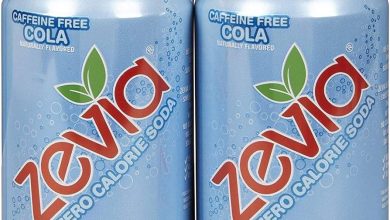Pork Skins (Plain) – Nutritional Information
Pork skins, also known as pork rinds, are a high-protein, savory snack that is enjoyed by many for its crispy texture and rich flavor. They are typically deep-fried or roasted, offering a crunchy alternative to traditional chips or snacks. Below is a breakdown of the nutritional information for plain pork skins.
Nutritional Composition (per 100g)
| Nutrient | Amount |
|---|---|
| Energy | 544.0 kcal |
| Protein | 61.3 g |
| Fat | 31.3 g |
| Saturated Fats | 11.37 g |
| Carbohydrates | 0.0 g |
| Fiber | 0.0 g |
| Sugar | 0.0 g |
| Calcium | 30.0 mg |
| Iron | 0.88 mg |
| Magnesium | 11.0 mg |
| Phosphorus | 85.0 mg |
| Potassium | 127.0 mg |
| Sodium | 1818.0 mg |
| Zinc | 0.56 mg |
| Copper | 0.094 mcg |
| Manganese | 0.069 mg |
| Selenium | 41.0 mcg |
| Vitamin C | 0.5 mg |
| Thiamin (B1) | 0.099 mg |
| Riboflavin (B2) | 0.283 mg |
| Niacin (B3) | 1.549 mg |
| Vitamin B6 | 0.023 mg |
| Folate | 0.0 mcg |
| Vitamin B12 | 0.64 mcg |
| Vitamin A | 12.0 mcg |
| Vitamin E | 0.53 mg |
| Vitamin D2 | 0.0 mcg |
Allergen Information
Pork skins contain no common allergens such as dairy, gluten, or nuts, making them suitable for many individuals with food sensitivities. However, due to the high sodium content, it’s important to consider moderation, especially for those with high blood pressure or salt sensitivities.
Dietary Preferences
Pork skins are suitable for individuals following low-carbohydrate or ketogenic diets due to their lack of carbohydrates and high protein and fat content. They are not suitable for vegetarians or vegans, as they are made from animal-derived products.
Health Considerations & Tips
Pork skins are an excellent source of protein and provide a significant amount of vitamins and minerals such as Vitamin B12, zinc, and selenium. However, they are also high in saturated fats and sodium. It’s important to consume them in moderation, especially for individuals monitoring their fat or sodium intake.
Due to their crunchy texture and savory flavor, pork skins can be used in various recipes, from adding a crunch to salads and soups to being enjoyed as a snack on their own. Their versatility makes them a popular choice for those seeking a filling, protein-rich snack option.
Conclusion
Pork skins, while being rich in protein and free from carbohydrates, are a delicious and satisfying snack option. They offer essential vitamins and minerals but should be consumed in moderation due to their high fat and sodium content. If you’re on a low-carb or ketogenic diet, pork skins can be an excellent addition to your snack repertoire. Just be sure to balance your intake with other nutritious food sources for overall health.










